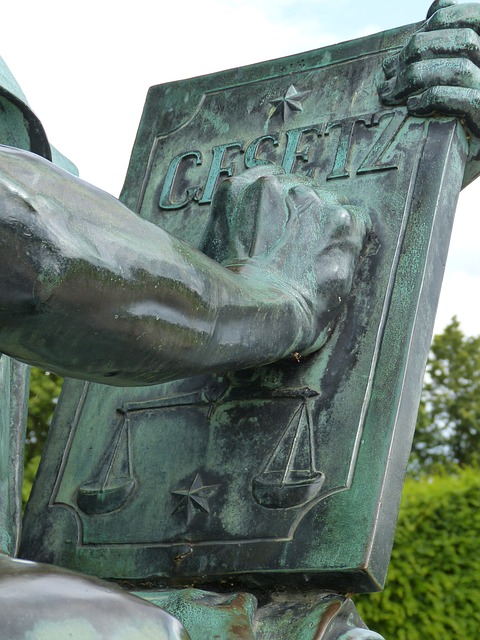A criminal lawyer in The Woodlands acts as a guiding beacon for individuals facing legal challenges, ensuring their rights are protected through complex court processes. With deep legal expertise and a focus on demystifying jargon, these professionals offer strategic defense, evidence gathering, and cross-examination skills. They strive to achieve the best outcome, be it acquittal or charge mitigation, by identifying legal loopholes and presenting compelling narratives. In appeals, they meticulously review cases for errors, build strong arguments based on precedents, and ensure client voices are heard, ultimately pursuing justice with a strategic, passionate, and client-centric approach.
In search of justice? Navigating complex legal proceedings can be daunting, especially within the intricate world of criminal law. This guide delves into the critical role of a Criminal Lawyer in The Woodlands, providing insights on how they secure your rights during trials, hearings, and appeals. From understanding the intricacies of each phase to employing successful strategies, discover expert tips for advocacy that ensure fairness and justice.
- The Role of a Criminal Lawyer in Navigating Legal Proceedings
- Representing Clients During Trials and Hearings
- Strategies for Success in Appeals
- Securing Justice: Tips for Effective Advocacy
The Role of a Criminal Lawyer in Navigating Legal Proceedings

A criminal lawyer in The Woodlands plays a pivotal role in navigating complex legal proceedings, ensuring that their clients’ rights are protected and justice is served. These legal professionals are advocates who guide individuals through trials, hearings, and appeals, offering expert knowledge of the law and court systems. They are adept at interpreting intricate legal jargon for their clients, making the process more understandable.
The lawyer’s expertise extends to building a robust defense strategy, gathering evidence, and cross-examining witnesses. Their goal is not only to achieve an acquittal but also to secure the best possible outcome, considering the circumstances. They are skilled in recognizing potential legal loopholes, utilizing them to their client’s advantage, and presenting compelling arguments to challenge the prosecution’s case.
Representing Clients During Trials and Hearings

When a client faces charges, whether criminal or otherwise, having an experienced criminal lawyer The Woodlands by their side is paramount in navigating the complex legal system. During trials and hearings, these advocates play a pivotal role in presenting the client’s case, cross-examining witnesses, and crafting compelling arguments to ensure their client receives a fair trial.
They meticulously prepare for each proceeding, reviewing evidence, researching applicable laws, and strategizing to counter the opposing side’s claims. Their goal is not only to defend their client but also to expose any discrepancies or weaknesses in the prosecution’s case, ultimately advocating for the best possible outcome.
Strategies for Success in Appeals

When it comes to appeals, a strategic approach is key for any criminal lawyer in The Woodlands. The first step involves thoroughly reviewing the case and identifying potential errors or misapplications of law during the initial trial or hearing. This may include examining witness testimonies, evaluating evidence presentation, and scrutinizing legal arguments made by both parties.
An effective strategy often entails crafting a compelling narrative that highlights the discrepancies and sets the stage for a successful appeal. Advocates must present their client’s case in the best light, ensuring all relevant facts are considered. They might also employ legal precedents and case law to strengthen their argument, demonstrating how previous rulings support their client’s appeal.
Securing Justice: Tips for Effective Advocacy

Securing justice in legal proceedings is a delicate task, especially for those navigating complex systems like criminal cases in The Woodlands. Effective advocacy requires a combination of strategic planning and passionate representation. One crucial tip for advocates is to thoroughly prepare for each step of the process, from trial strategy to crafting compelling arguments for appeals. This preparation includes meticulous research, understanding of legal precedents, and a deep knowledge of the client’s case history.
Additionally, building strong relationships with clients fosters trust and ensures their voices are heard. A good advocate listens attentively, clarifies doubts, and communicates complex legal concepts simply. By doing so, they empower clients to make informed decisions and actively participate in their defense, ultimately enhancing the chances of a positive outcome. This client-centric approach is vital for achieving justice in every aspect of the legal journey.
In the pursuit of justice, a criminal lawyer in The Woodlands plays an indispensable role, guiding clients through complex legal landscapes. From navigating initial trials and hearings to meticulously crafting appeals, these advocates ensure that every step is strategic and focused on securing the best possible outcome. By employing effective advocacy techniques, they not only protect their clients’ rights but also contribute to a fair and robust justice system.



